The CMP Review — Week of November 13
November 13, 2023
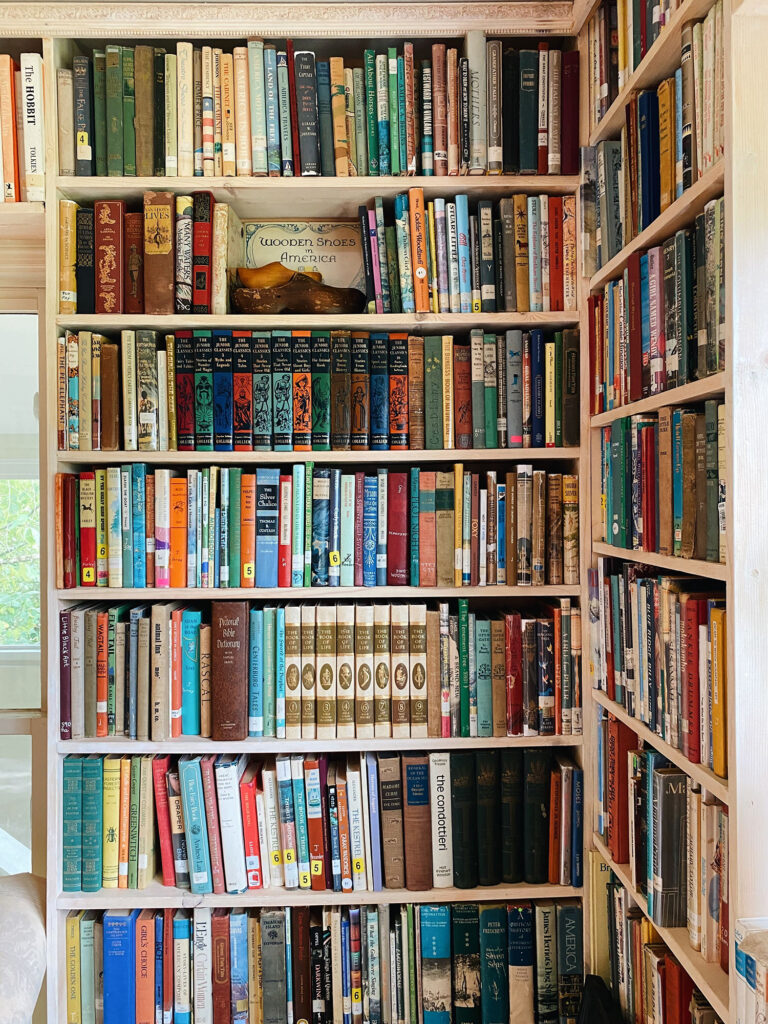
“But is imagination worth all this trouble? Is it of any use to encourage the child to re-tell his lessons, to tell stories, to use his own gesture, his own intonation; to be fearless in his narrative, natural in his method? Is it of any use to supply him with a commonplace book, in which to write down the verses he learns, the dates and longitudes he knows, the names of the books he admires; is repetition of his work as valuable as our Jesuit schoolmasters would suggest? Is direct encouragement to practise hobbies an educating item in his life at all? And are the results of all this, seen in the stories he weaves, the intelligence he evinces, the many-sided interest in his life as he grows up—are the results worth attaining? Why, ladies and gentlemen, they are everything; and you may give the name of education to anything else, but this is the thing itself.” (PR13, A. Burrell, “How to Preserve the Imaginative Power in Children”)
@tessakeath
November 14, 2023
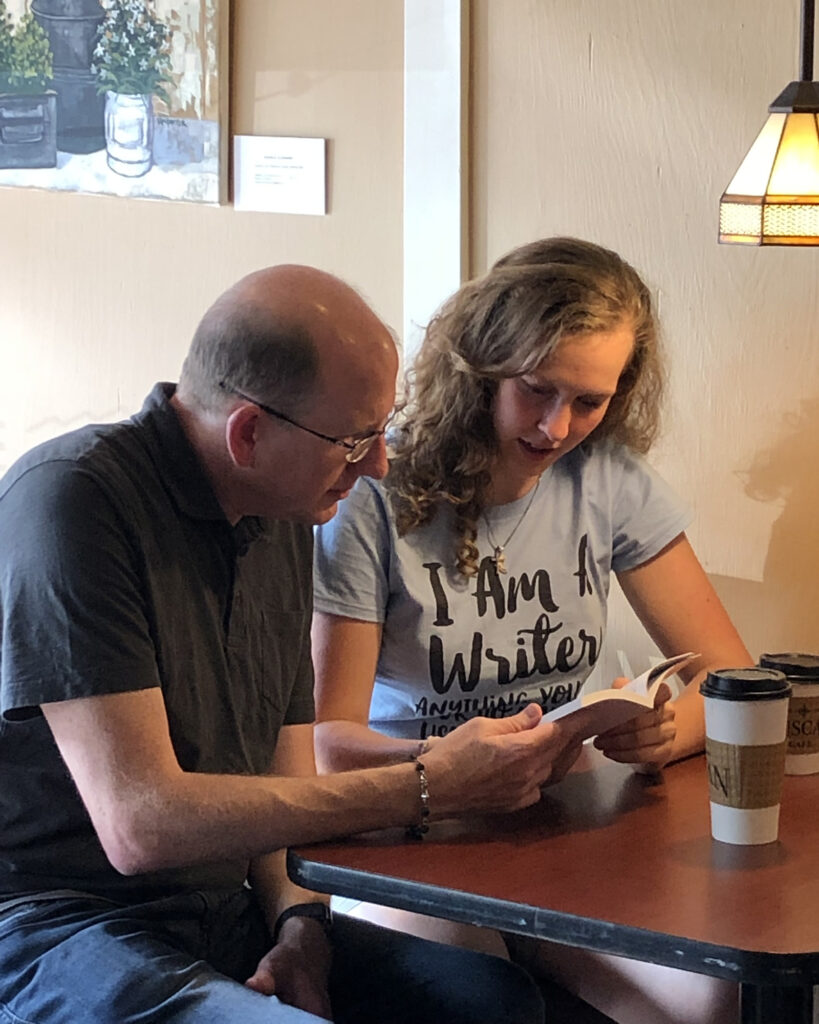
When it comes to high school at home with Charlotte Mason, it’s not an academic question for our team. Collectively we’ve graduated four high schoolers so far.
Nine weeks ago we began sharing a series of Parents’ Review articles that address the upper forms from many perspectives. Our grand finale for this series is our first-ever roundtable discussion by the Charlotte Mason Poetry team. In this special episode, @antonella.f.greco, @rbaburina, @tessakeath, and I talk about our main takeaways from the PR articles as well as respond to some reader and listener questions.
And then we end with stories and reflections on our actual experiences teaching our high schoolers at home with Charlotte Mason. We hope you take a moment to listen and be inspired by our testimonies — in the spirit of the Apostle Paul who said, “I can do all this through him who gives me strength.” Find it here.
@artmiddlekauff
November 15, 2023
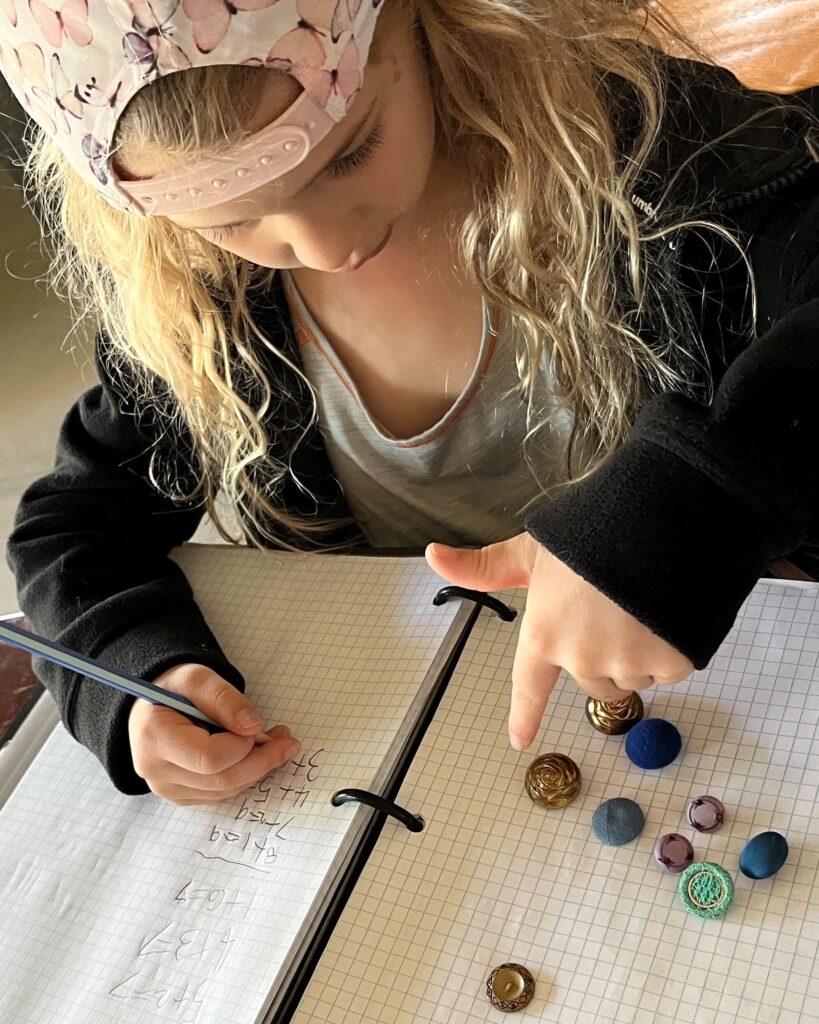
Mathematicians are great imaginists with an immense curiosity—the same qualities inherent in children. The ability to think mathematically is inside all of us to a certain degree and can be cultivated by giving our children time to ponder, grapple with problems, and make their own discoveries.
Check out our free math resources to help make the study of math a beautiful adventure in your home.
@rbaburina
November 16, 2023
Charlotte Mason’s School Education contains three extraordinary chapters with the shared title “We are educated by our intimacies.” In these chapters, Charlotte Mason takes a long walk through William Wordsworth’s The Prelude and John Ruskin’s Præterita to illustrate and illuminate her conviction that education is the science of relations.
Reading The Prelude in conjunction with School Education is a great idea — but which edition should you read?
@artmiddlekauff
November 17, 2023
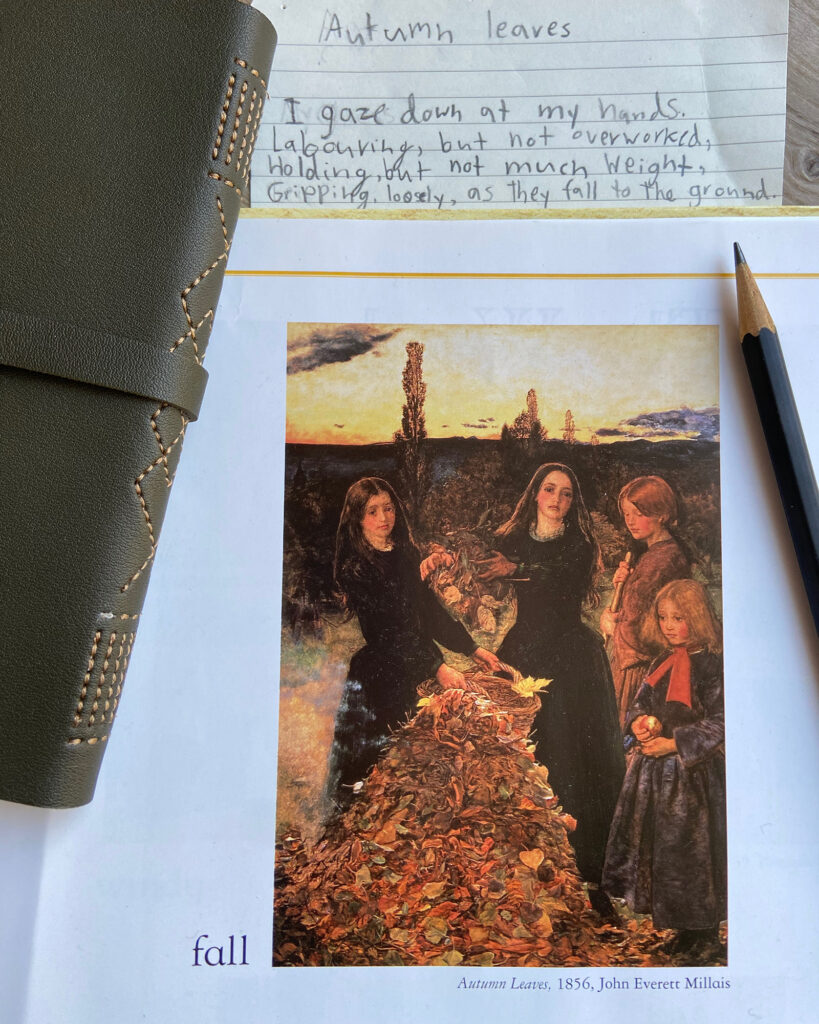
Autumn Leaves
By Serafina P. Greco (2023)
I gaze down at my hands.
Labouring, but not overworked,
Holding, but not much weight,
Gripping loosely, as they fall to the ground.
I observe the girl on my right.
My sister’s arms are tired,
Her long hair falls down her back,
As does mine. Her face is full of misery.
Hard times have struck, it shows
On my face, on the face of my sister,
On the face of my brother as he is raking leaves,
Even on the face of my little sister
As she holds an apple from the bin, the last one.
My dress is elegant, even as we collect leaves.
The lace around the neck still neat.
The cuffs still crisp and new.
And the neatly collected waist still prim.
I wear a long, black dress
Because that is what I have.
Others wear spring colours, even though they mourn.
We are all mourning.
[Note: This ekphrastic poem was inspired by a print of Autumn Leaves by John Everett Millais. Serafina also read this poem at a student art and poetry event here on the Providence Manitoba campus. We hope it will be an encouragement to your family to try writing a poem on a work of art that you enjoy!]
@antonella.f.greco
November 18, 2023
This guy.
Collecting the sunflower seeds that fall below the window bird feeder and squirrelling them away in my garden box. 🤣 Serafina and I watched him and laughed and laughed. What a nut!
If we get a sunflower in that box, we’ll know why! 🤦🏼♀️
@antonella.f.greco
November 19, 2023
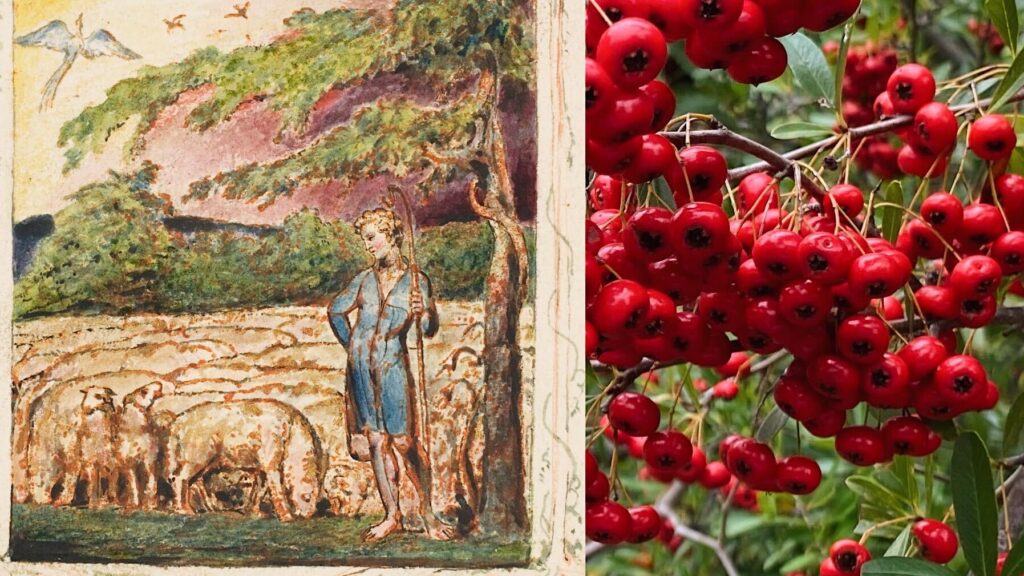
When William Blake published his famous poem “The Shepherd” in 1789, it was illustrated with a painting by his own hand. He wrote of “the Shepherd’s sweet lot”:
For he hears the lambs’ innocent call,
And he hears the ewes’ tender reply;
He is watchful while they are in peace,
For they know when their Shepherd is nigh.
Blake capitalized the word Shepherd, pointing to Jesus the Good Shepherd. The lambs know when their Shepherd is nigh, which even more specifically evokes John 10:27: “My sheep hear My voice, and I know them, and they follow Me.”
The passage in John recounts Christ’s continued controversy with the religious leaders. “You you do not believe,” said Jesus, “because you are not of My sheep.” In Charlotte Mason’s sixth poem on the Good Shepherd, she explores the lambs who know when their Shepherd is nigh, and the men who refuse to be regarded as sheep. Read or hear her thoughtful poem here.
@artmiddlekauff